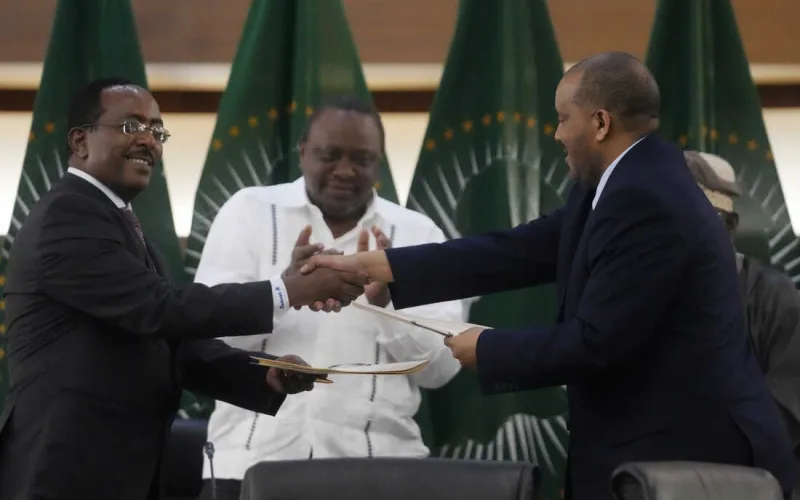The G7 and the European Union (EU) have jointly recommended expediting the Disarmament, Demobilization, and Reintegration (DDR) process for former combatants in Ethiopia.
This recommendation comes in the wake of the Pretoria Peace Agreement commitments, which have garnered support from more than 30 countries and entities.
Representatives from Canada, the EU, France, Germany, Italy, Japan, the United Kingdom, and the United States, stationed in Addis Ababa, Ethiopia, have expressed their appreciation for the ongoing dedication of the Government of Ethiopia (GOE) and the Tigray Interim Regional Administration.
Both parties have pledged to fulfill the outstanding provisions of the Permanent Cessation of Hostilities Agreement (COHA), initially signed on November 2, 2022, in Pretoria, South Africa.
The G7 and EU made their announcement in a joint statement following the Strategic Reflection Meeting on the Implementation of the COHA in Ethiopia, held on March 11, 2024, in Addis Ababa.
During the meeting, discussions were conducted in a constructive atmosphere, facilitated by AU Chairperson Moussa Faki Mahamat.
Additionally, African Union (AU) High-Level Panel members, former Presidents Olusegun Obasanjo and Uhuru Kenyatta, along with observers from the EU, Intergovernmental Authority on Development (IGAD), United Nations, and United States, participated.
In their joint statement, the G7 and EU acknowledged progress in COHA implementation, particularly regarding silencing firearms, ensuring unhindered humanitarian access, restoring basic services, and establishing an Interim Regional Administration (IRA) in Tigray.
However, they emphasized the need for further progress, particularly in expediting the DDR process and creating a conducive environment, including resource allocation, for the reintegration of ex-combatants.
The statement underscored the urgency of addressing the needs of conflict-affected individuals, including reconstruction efforts.
Furthermore, it emphasized the importance of a victim-centered transitional justice process and accountability, urging continuous meetings between parties to assess implementation progress.
The initiation of a political dialogue, in accordance with COHA provisions, was also welcomed as a means to resolve critical outstanding issues, facilitating the orderly, secure, and voluntary return of internally displaced persons.
While recognizing the challenges that lie ahead for the GOE and IRA, the G7 and EU urged them to ensure that COHA paves the way for lasting peace.
Additionally, they called upon all parties involved in crises across Ethiopia, including in Amhara, Oromia, and other regions, to pursue peace through dialogue.
The statement concluded by acknowledging the ongoing efforts of the AU’s Monitoring, Verification, and Compliance Mission and expressed support for its expansion and extension, highlighting its crucial role in ensuring compliance with peace agreements and fostering stability in the region.
The Ministry of Finance has highlighted the profound impact of the two-year war in northern Ethiopia, encompassing the Tigray region and other affected areas.
The conflict has led to the obliteration of infrastructure, constructed over years through loans and public funds, resulting in a staggering loss of $28 billion for the nation.
This war has directly affected one-third of the population residing in conflict-stricken regions, forcing three million individuals into extreme poverty.
The financial devastation caused by the conflict equals Ethiopia’s entire foreign debt accumulated for economic development over numerous years.
As per the Ministry of Finance’s findings, approximately $20 billion is necessary to rehabilitate the Tigray, Amhara, and Afar regions and restore them to their pre-war condition, highlighting the monumental challenges ahead in reconstruction and recovery efforts.
